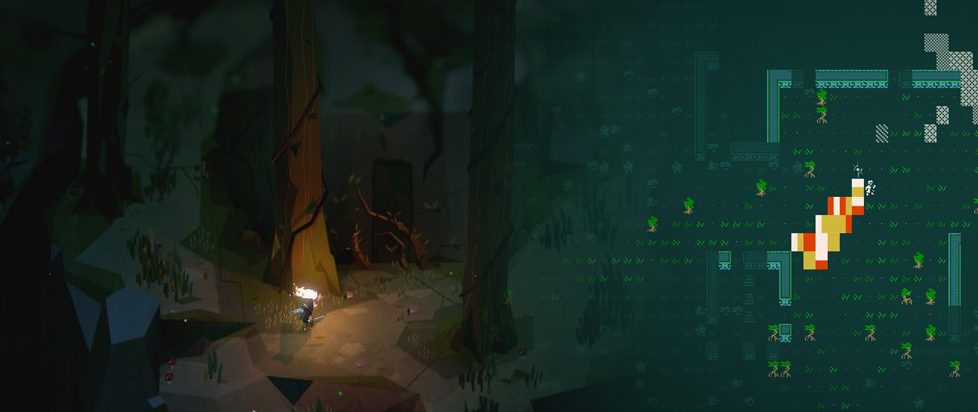
The Mental Umami of Risk and Reward
Pushing your luck takes some real psychic fortitude, and I am completely bereft of the gift. At least this self-knowledge has kept me from getting swept up in the slots and the dice and the tables, having learned my lesson after losing $20 at some sitcom-themed machine before I’d even settled into the stool. Gambling’s ephemeral fun was not passed down to me, especially when money is on the table, but that doesn’t mean I don’t appreciate the mental umami of risk even if I’m rarely in a position to savor the reward.
Caves of Qud, a roguelike in the most fundamental meaning of the term, is really hammering down on my inability to accurately assess risk. For days I have beat my head against the early rust-red rocks that I’m treated to over and over again. In spite of this struggle, I find each keystroke serves another sweet drip of understanding, even if I’m immediately stoned to death by a pack of baboons or obliterated in a dark corner by a kobold-like beast. This has been the majority of my experience, many parasangs walked but never past the first area meant to muck around in and find one’s footing. I made it to level three once and felt like a god, but should have minded my quests and inventory more closely as just a few minutes past that achievement I was cut down in a dark corner.
Sifting through a silo of guides and walkthroughs led me to a tutorial mod that served a first real nibble of the simmering potential throughout Caves of Qud. The game’s mysteries are its rewards, with every seam investigated and sliver grasped. A similar seductive potential was found in old CRPG’s for Advanced Dungeons & Dragons and the like, which I did not fare much better in as they also provided no instruction and little context. Then and now, we are meant to thrash around, delve into context outside of the screen, to do the work.
At the same time as Caves of Qud I also installed Below, the unfairly maligned dungeon crawler from Capybara games. These games operate under the same framework—you are here to explore, defeat enemies, loot, die, try again, but where Caves of Qud is maximalist in its systems while sticking to hard pixels and a monospace fonts, Below aims to show and not tell in every avenue possible. The titular below is moody and dark but saturated, clearly operating in our contemporary visual resolutions rather than the flickering green CRT dreams of yesteryear. At first load your boat slowly rocks to shore, and from there you are in control, no preamble or manufactured motivation, in fact very few words altogether—you move, you press buttons, occasionally some glyphs pop up, but mostly you are expected to explore not only the space but the systems to determine the tools at your disposal.
Neither of these games explain much but it’s fascinating how differently they leave the player to be. Below aims to engage your sense of sight and sound to the extreme, with ever layer of shadow peeled a new fact is revealed. When your character hungers a throb fills your ears. Every swing swung, each crystal swiped, all pools you lap to quench your thirst nudge ripples of tone in an ambient soundscape that conveys the loneliness of your adventure while cheering you on through each reveal. Caves of Qud gives you a window to a world of lore, equipment, mutations, abilities, creatures, fantasy and future included. At first the frame is tight but I can feel the aperture widening with each brutal death.
Though Below has killed me almost as often as Caves of Qud, each defeat similarly instructs enough to encourage another descent. Both games also offer more forgiving settings for play, which I may take them up on eventually, but for now I am surprised by how much I appreciate the steadfast stance each takes in demanding cautious, thorough gameplay while also complicating that approach at every turn. And despite having such similar goals, their divergent and inversely maximal and minimal stances towards visual aesthetics and context reiterate how important the bond between systems and presentation is. We have an innate desire, a primordial curiosity, that endangers us as often as it does cats, where every stairway leads to a multitude of flavors of discovery and destruction.
// Levi Rubeck is a critic and poet currently living in the Boston area. Check his links at levirubeck.com





